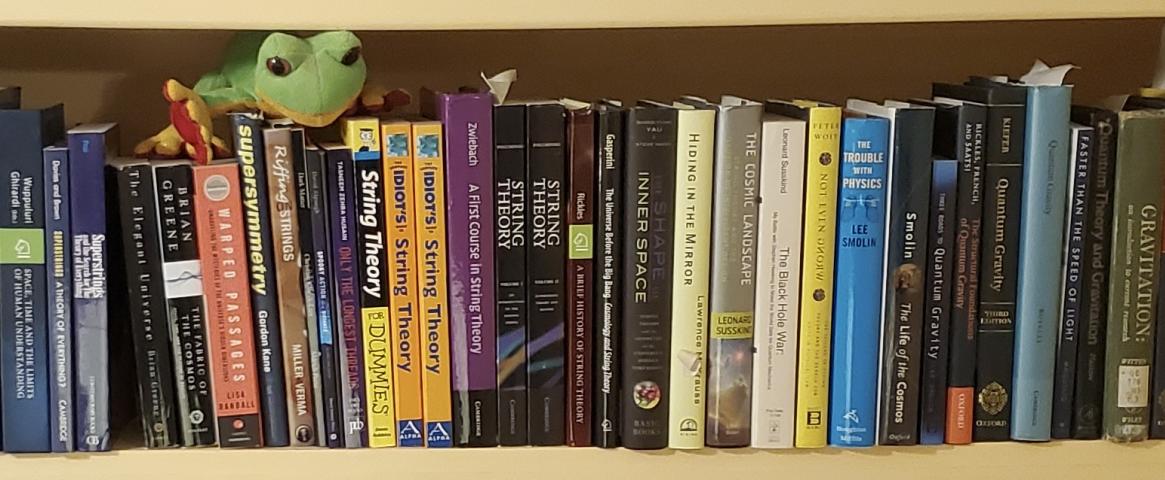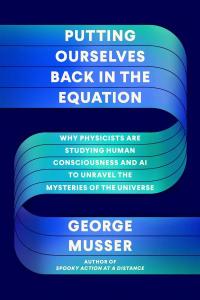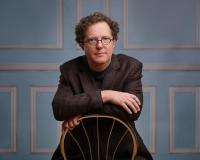
George Musser—Putting Ourselves Back in the Equation: Why Physicists are Studying Human Consciousness and AI to Unravel the Mysteries of the Universe
WHY PHYSICISTS ARE STUDYING HUMAN CONSCIOUSNESS AND AI
TO UNRAVEL THE MYSTERIES OF THE UNIVERSE
George Musser
Farrar, Straus and Giroux, November 7, 2023, $30
ISBN 13: 9780374721794
Musser reports:
Book editors usually want you to come to them with a clear story arc, but this book didn’t start like that. The editor I’d worked with on my previous book had moved on, so she handed me off to a colleague— always a fraught moment. Over a get-to-know-you coffee in 2018, he asked what I was working on. I said I was fascinated by the convergence of physics, neuroscience, philosophy of mind, and artificial intelligence. Not only could physics help those other fields, many physicists told me they also needed help: To understand observations, they had to understand observers.
Since this topic failed the story-arc test, I was hesitant to propose a book. But my new editor got excited, saying the exploration is more important than the dénouement. If we had to wait for actual answers to deep questions, the sun might explode in the meantime. And with that I was off.
Keeping the lights on as a freelancer, especially during a years-long book project, is a huge challenge. I’d hoped to apply for a Sloan Foundation book grant, but Sloan demanded a sample chapter, which created a chicken-and-egg problem: By the time I was writing chapters, I’d be halfway done. In retrospect, I probably should have faked one.Fortunately, the Fetzer Franklin Fund generously gave me a Pioneers Award, which covered my travel expenses for reporting trips. For me, in-person reporting is vital. Even though I wasn’t going deep into people’s lives and personalities, many of the ideas I play with come from offhand remarks or lunchtime conversations, which you just don’t get with Zoom interviews. I think personal contact with scientists may be the single most rewarding thing about a science-writing career.
Pre-publication reviews of the book have focused on what it says about quantum physics, but I’m hoping people also will get something out of my discussion of AI. I’m fascinated by the mechanisms of today’s AI. It’s hard to say anything definitive about safety or algorithmic bias unless we know how these systems work, and this is where the physicists—and we physics writers—can shed light.
Contact info:
- George Musser: gmusser@nasw.org, https://georgemusser.com,
Mastodon: @gmusser
Bluesky: @gmusser
Threads: @georgemusserjr - Book: Putting Ourselves Back in the Equation: Why Physicists Are Studying Human Consciousness and AI to Unravel the Mysteries of the Universe
- Publicist: Stephen Weil, 610-608-8413, stephen.weil@fsgbooks.com
- Agent: Susan Rabiner, 212-279-0316, susan@rabiner.net
NASW members: will your book be published soon? Promote it by submitting your report for Advance Copy.
Tell your fellow NASW members how you came up with the idea for your book, developed a proposal, found an agent and publisher, funded and conducted research, and put the book together. Include what you wish you had known before you began working on your book, or had done differently.
See https://www.nasw.org/advance-copy-submission-guidelines.
View Advance Copy archives at https://www.nasw.org/member-article/advance-copy.
Thinking of writing a book? If you are a NASW member, you may access a list of more than 200 books and online resources to help you craft your book proposal, find an agent and funding sources, negotiate your contract, learn about self-publishing, publicize and market your book, and more at https://www.nasw.org/article/write-book.
View the recording of a recent Advance Copy Virtual Business Chat, A Primer for Authors on Book Publicity. NASW mhttps://www.nasw.org/events/nasw-science-writers-virtual-events-video-recording-archive-2023-members-onlyember login required.
Send book info and questions about book publishing to Lynne Lamberg, NASW book editor, llamberg@nasw.org.
Follow @LynneLamberg on Twitter for news about science/medical books, writing, and NASW authors.
Banner image adapted from original photo by George Musser.
Advance Copy
The path from idea to book may take myriad routes. The Advance Copy column, started in 2000 by NASW volunteer book editor Lynne Lamberg, features NASW authors telling the stories behind their books. Authors are asked to report how they got their idea, honed it into a proposal, found an agent and a publisher, funded and conducted their research, and organized their writing process. They also are asked to share what they wish they’d known when they started or would do differently next time, and what advice they can offer aspiring authors. Lamberg edits the authors’ answers to produce the Advance Copy reports.
NASW members: Will your book be published soon? Visit www.nasw.org/advance-copy-submission-guidelines for information on submitting your report.
Publication of NASW author reports in Advance Copy does not constitute NASW's endorsement of any publication or the ideas, values, or material contained within or espoused by authors or their books. We hope this column stimulates productive discussions on important topics now and in the future as both science and societies progress. We welcome your discussion in the comments section below.


